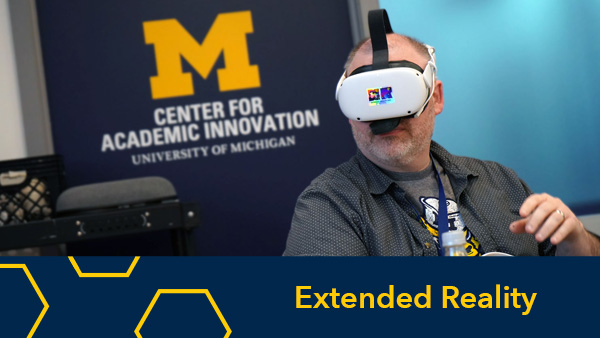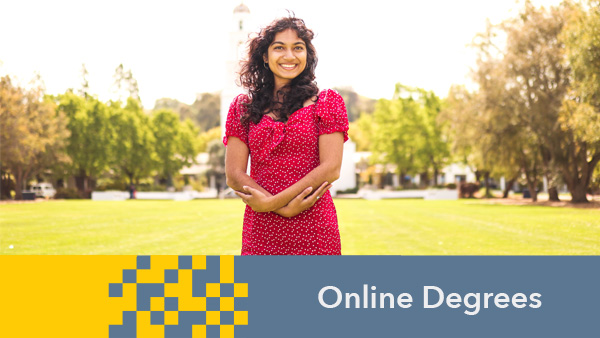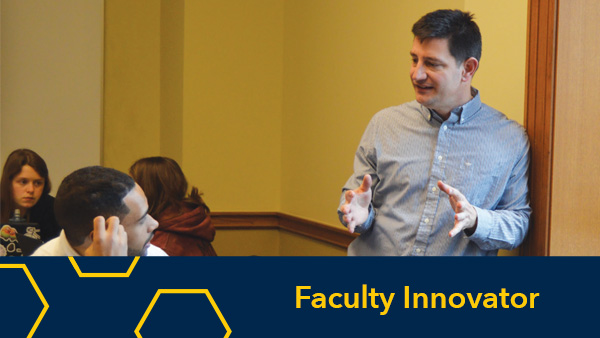
Sean Corp, Communications Lead
With the proliferation of generative AI tools, including in higher education, the need to understand how to build quality, resilient student assessments has become more important than ever. Pete Bodary, associate dean of undergraduate education at the School of Kinesiology, will study assessments in the era of generative AI as a faculty innovator in residence at the Center for Academic Innovation.
Bodary’s faculty-in-residence term will last one year, with an intensive summer spent based out of CAI’s office. During this time, he will work with the center’s educational research and analytics team on evaluating generative AI assessments from multiple perspectives.
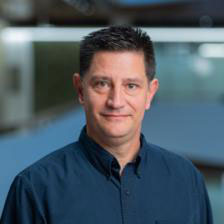
“I have always been excited about the innovative environment that CAI maintains. We must urgently think through how GenAI will shape higher education, and I want to explore specifically how we should evolve our assessments and curricula in this era of GenAI,” Bodary said.
“Pete has always cared deeply about setting high-quality standards for student learning, and he really cares about students graduating with meaningful knowledge. At the same time, there is fear throughout education about GenAI’s impact,” said Cait Hayward, the director of research and analytics at the center. “It’s always been hard to design good assessments, let alone navigate designing assessments in the age of GenAI. I am really excited that we are tackling this head on and for the time with Pete to think through what it looks like to do this well.”
Bodary and the team at the center will evaluate assessments at the School of Kinesiology and assess their resilience against generative AI tools. Bodary will also consider how assessments could be adapted to include the use of generative AI tools while providing the desired learning outcome for students.
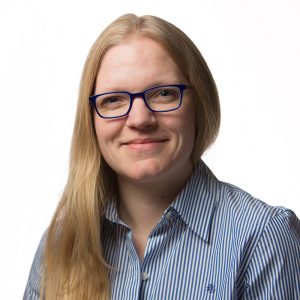
“Our goal is to understand how to build better assessments that both engage students in GenAI skills while also being difficult to use GenAI to answer directly. Ultimately, what matters most is students gaining the content knowledge they need to be successful,” Hayward said.
“Kinesiology has three undergraduate programs and a considerable diversity of learning objectives and career aspirations. We are preparing doctors, lawyers, sports agents, and physical therapists,” Bodary said. “We anticipate that GenAI will significantly impact all of these careers, and we must consider how best to prepare these students to excel in these fields.”
The collaboration between Bodary and the center will include data collection, research, experimentation, analysis, and engagement with the larger U-M community.
“We want to create a playbook for other schools and colleges that documents how we did our work so that others can adapt it to their unique needs,” Hayward said.
Throughout the year, Bodary and Hayward will invite thought leaders, researchers, and interested faculty to attend events at the center to discuss the challenges and opportunities in assessment in the era of GenAI and learn together how to navigate this space.
The center has firmly embraced its role as both a hub of conversations related to generative AI and exploring how generative AI can be used in online and residential education. The center committed to launching 35 online short courses to help people learn foundational knowledge and skill-building opportunities for using generative AI in professional roles.
Recent launches include the short courses “Generative AI Essentials: Overview and Impact” and “Llama for Python Programmers” and the online course “Data Augmented Technology Assisted Medical Decision-Making.” The center also launched an Artificial Intelligence Collection with thematic playlists of videos, articles, and access to courses dedicated to generative AI.
The center is also evaluating the use of generative AI and machine learning technologies in its own work. The center’s GenAI Council evaluates the use of tools and related matters of privacy, ethical use, and enhanced pedagogy.
